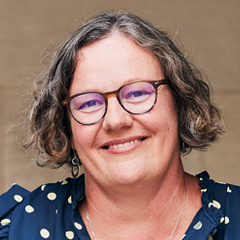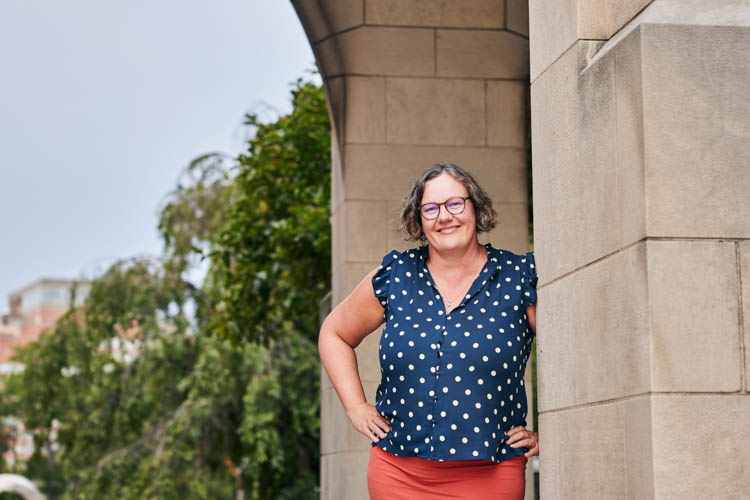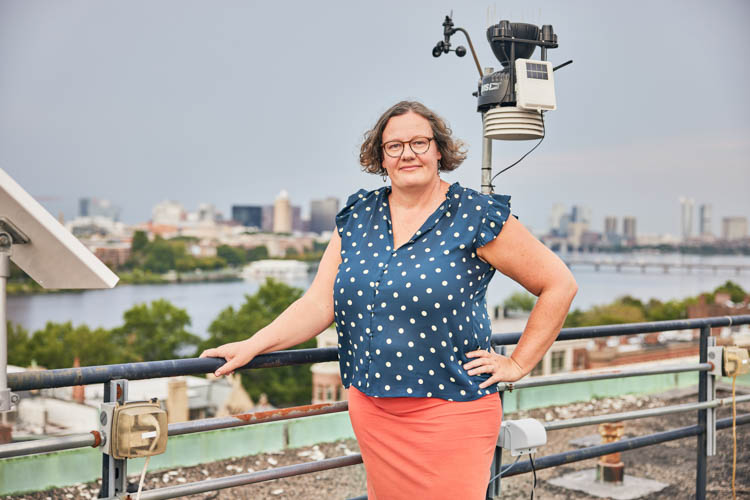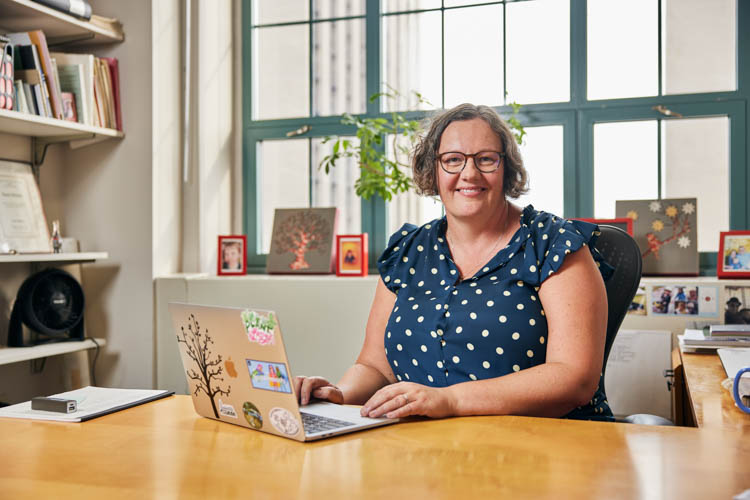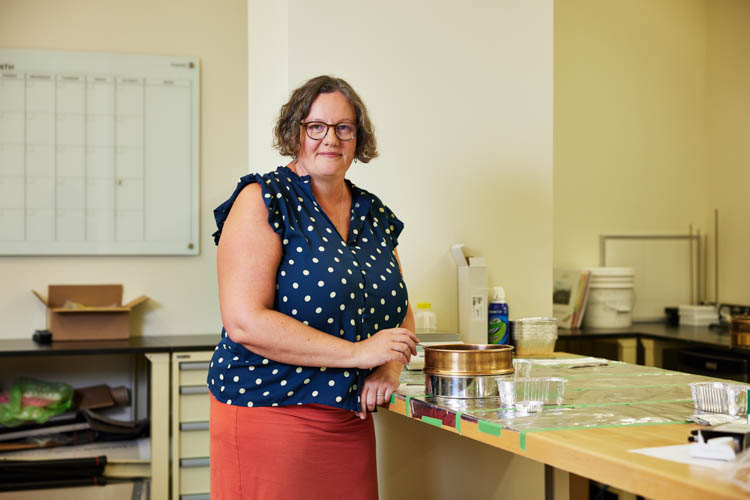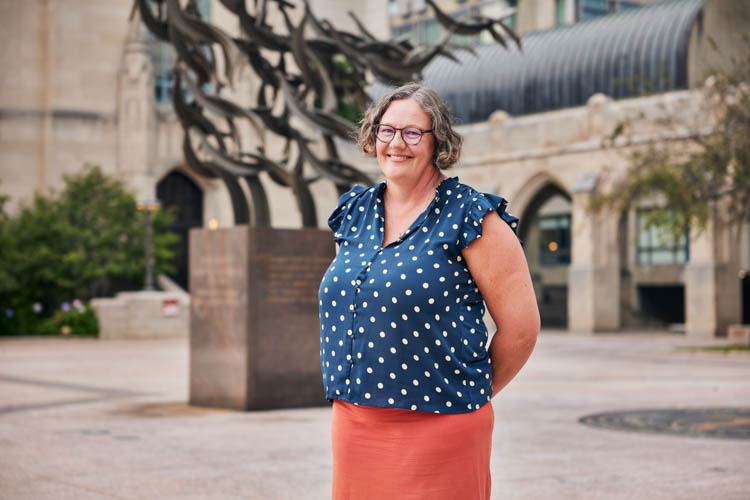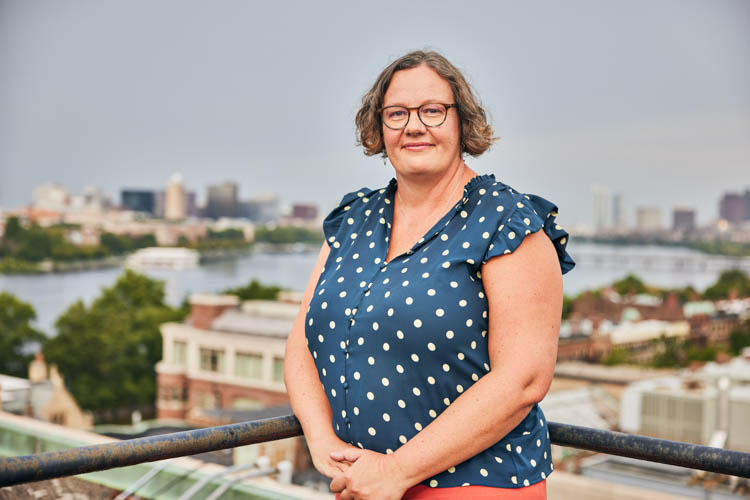About Lucy’s Work
Lucy Hutyra is an environmental ecologist investigating the impacts of urbanization on environmental carbon cycle dynamics. She draws on a range of tools—including field observations, remote sensing, spatial analysis, and mathematical modeling—to measure where, when, and how much carbon moves between different reservoirs, like plants, soil, water, and air, in forests and urban areas.
Understanding the amount of carbon exchanged between the atmosphere and biosphere is critical to determining the effectiveness of carbon emission reduction and climate change mitigation strategies. Hutyra’s research focuses on how components of local and regional ecologies (plants, trees, and soil) contribute to urban carbon fluxes and how much carbon is exchanged between these and nonbiological sources. She has shown that plant and soil ecosystems emit and absorb carbon differently depending on the surrounding land use. The fragmentation of forests around growing cities in the Northeastern United States has created microenvironments with unique carbon respiration patterns. Nearly 25 percent of trees in the U.S. Northeast exist at the edge of a forest. Hutyra found that trees on the edges of these temperate forests grow faster and take up carbon quicker than trees in the interior of forests. Additionally, human-made edges (for example, along a road or housing development) have even higher impact on tree growth and carbon uptake than natural edges (such as at a waterway). Hutyra has also demonstrated that soils in urban fragmented forests release carbon into the atmosphere at lower rates than fragmented forests in rural areas. The respiration rates in urban forest edges are also less sensitive to temperature increases. Hutyra’s findings indicate that conservation of urban forest fragments has multiple mitigation effects on local climate change impacts.
Hutyra recognizes the need to translate lab and field science into actionable information for policymakers, and she catalyzes large collaborations across disciplines. In 2019, she led a project that brought together academic and governmental researchers with city leaders to create standardized measurements of carbon emissions from both human and natural sources. She and her team created an app, Right Place, Right Tree—Boston, to improve the efficacy of tree-planting initiatives intended to reduce urban heat. While streetscape trees consume carbon quickly, their mortality rates are nearly twice that of rural trees, leading to a net loss of carbon storage over time. Right Place, Right Tree helps city planners target areas where increasing tree canopies could be most beneficial. It identifies tree species suitable for local conditions and ways to maintain tree health to reduce mortality rates. Hutyra has also created models to measure the cooling benefits of tree canopies, green roofs, and white roofs in different climate conditions. Hutyra expands understanding of carbon cycle variability in urban ecosystems, and her work will be critical to climate mitigation efforts that are increasingly localized as urbanization continues apace.
Biography
Lucy Hutyra received a BS (1998) from the University of Washington and an AM (2006) and a PhD (2007) from Harvard University. She was subsequently a research scientist at the University of Washington (2007–2009). She joined the faculty of Boston University in 2009 and is currently a professor in the Department of Earth and Environment. During her 2023–2024 academic sabbatical, she is a visiting faculty researcher at Google. Hutyra is also an associate of the Arnold Arboretum (since 2015) and the Department of Earth and Planetary Sciences at Harvard University (since 2016). Hutyra has published in a variety of scientific journals, including Proceedings of the National Academy of Sciences, Nature, Journal of Geophysical Research, Global Change Biology, and Science of the Total Environment, among others.
Published on October 4, 2023







